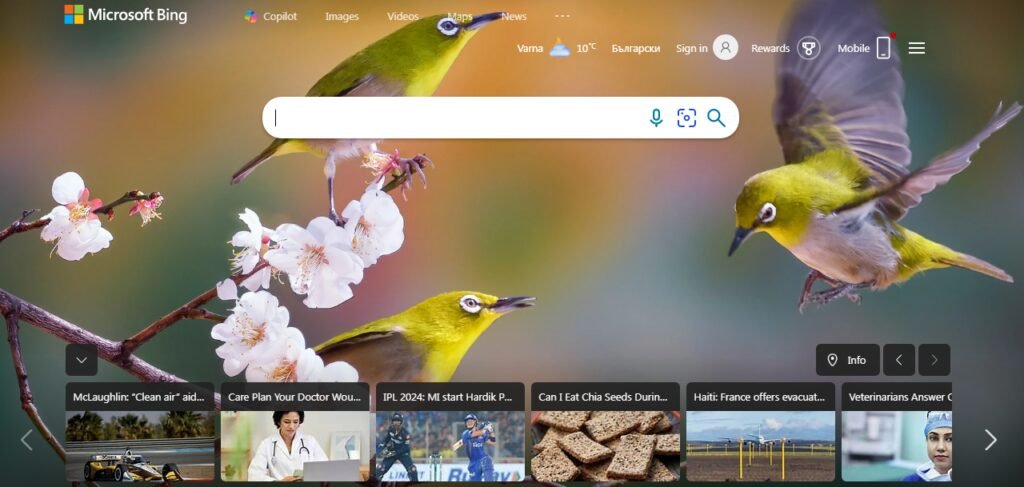Since forever Google stands as the titan of search engines, a beacon for billions seeking knowledge, entertainment, and directions.
Yet, in the shadow of this giant, Bing carves out its own niche, revealing that it’s not just a fallback but a formidable competitor in specific realms.
Beneath its surface lie features and functionalities where Bing not only matches but surpasses Google, offering a distinctive blend of tools that cater to particular preferences and needs.
Today we’re highlighting five maybe not that surprising aspects where Microsoft’s search engine shines brighter than its omnipresent rival.

The Visual Vanguard: Bing’s Pioneering Image Search
Bing’s approach to image search unveils a realm where it leaps ahead of Google.
Its Visual Search capability allows users to explore the internet through images rather than words.
By simply uploading a picture, users can uncover a wealth of similar images, detailed insights, and even shopping options for items within the photo.
This feature not only showcases Bing’s advanced image recognition technology but also enhances the user’s ability to interact with the digital world in a more intuitive and visually engaging way.
Charting the Uncharted: Bing Maps’ Unique Perspectives
While Google Maps is the go-to for many navigators, Bing Maps offers its own suite of innovative features.
The standout is undoubtedly its Bird’s Eye View, providing high-resolution, angled aerial imagery that gives users a detailed look at buildings and landscapes—a boon for professionals in architecture, real estate, and urban planning.
This capability, coupled with seamless integration with the Microsoft ecosystem, positions Bing Maps as a valuable tool for those seeking a different vantage point on the world.

The Rewards of Exploration: Bing Rewards
In the world of search, Bing adds an extra layer of incentive through the Bing Rewards program.
Users earn points for searches conducted on Bing, which can be redeemed for gift cards, donations to charities, and other rewards.
This unique program transforms the routine activity of searching online into a rewarding experience, offering tangible benefits that Google’s search engine does not.
A Gateway to Knowledge: Bing’s Reference Tools
Bing excels as a gateway to knowledge with its comprehensive suite of reference tools.
The search engine integrates directly with a variety of encyclopedias, dictionaries, and academic databases, making it an invaluable resource for students, researchers, and the eternally curious.
This integration offers quick access to verified information and in-depth articles, facilitating a deeper understanding of complex topics without the need for extensive searching.
The Personal Touch: Bing’s Customization Capabilities
Finally, Bing’s personalization features set it apart, offering users a more tailored search experience.
With options to customize the background of the search engine page, save favorite searches, and receive personalized news and weather updates,
Bing creates a more engaging and individualized interface. This attention to user preference not only enhances the aesthetic appeal of Bing but also fosters a sense of connection and loyalty among its users.

Conclusion
While Google may dominate the landscape of search engines, Bing emerges as a hidden gem with distinct advantages that cater to specific needs and preferences.
From its pioneering visual search capabilities to its rewarding loyalty program, Bing offers a suite of features that not only compete with but in some cases, surpass Google.
Whether you’re a professional seeking detailed aerial imagery or a casual user longing for a more personalized search experience, Bing’s unique offerings demonstrate that it’s time to give this underappreciated search engine a second look.